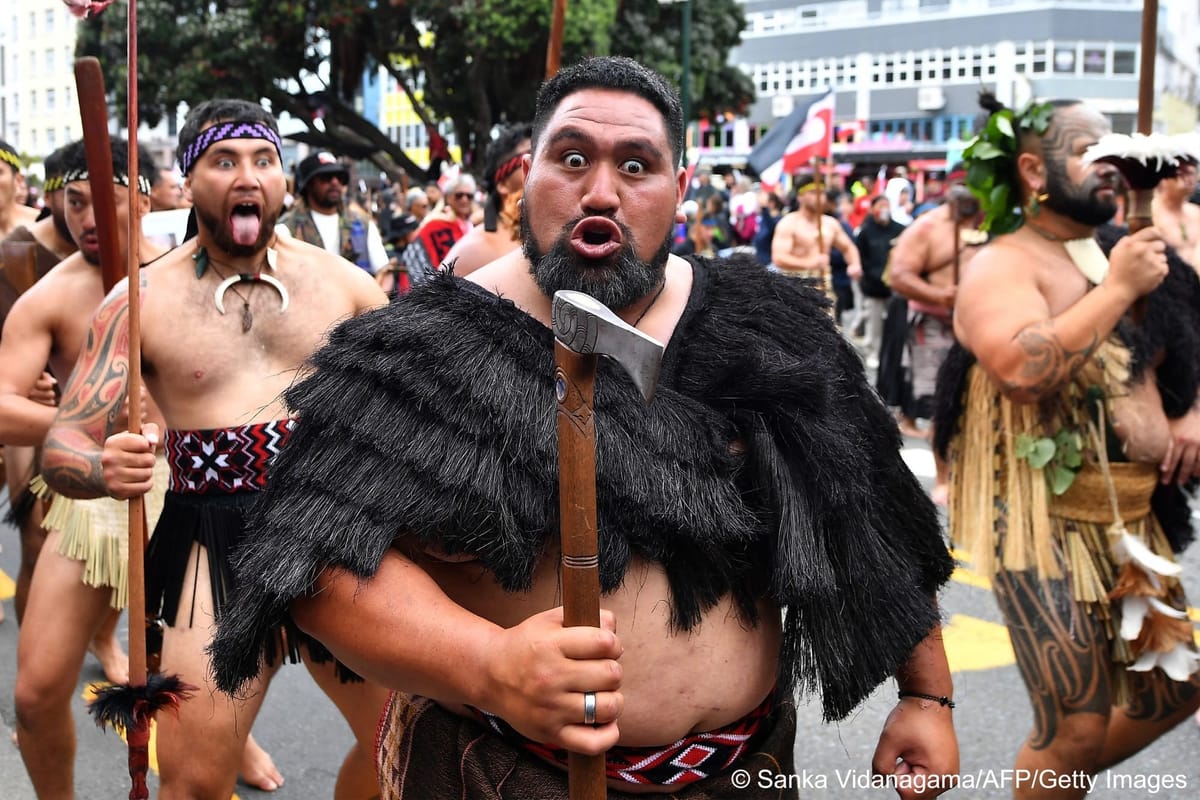Maori
Maori are New Zealand's second largest ethnic group after Europeans.

Key words
- Distinct: clearly separate and different (from something else)
The two languages are quite distinct from each other.
- Identify: to feel and say that you belong to a particular group of people
Some rapists have identified as women to get into women's prisons.
- Exempt: with special permission not to do or pay something
Pregnant women are exempt from dental charges under the current rules.
- Anglicize: to change a word or name to make it sound or look like English
Lloyd is an anglicized form of the Welsh name Llwyd, meaning “gray-haired”
- Instrumental in: important in causing something to happen
She was instrumental in bringing about the prison reform act.
Read the article to find the answers
- Where do Maori come from?
- Who was the first European to arrive in New Zealand?
- What was the Moriori genocide?
- How many Maori identified as Christians in a recent census?
New Zealand
Maori are descended from East Polynesians who developed a distinct culture during centuries of isolation on the North Island of what is now New Zealand. Today, people in New Zealand can choose to identify as Maori and be exempt from certain taxes without having to prove their ancestry.
The Dutch named the islands in the south-westernmost part of Polynesia Nova Zeelandia, after the Dutch province of Zeeland. in the 1600s, but the Dutch did not land due to a violent encounter with the Maori. The first European to actually set foot on New Zealand soil was James Cook of England in 1769, and many places in New Zealand still bear Cook's name, including Mount Cook and Cook River.
Cannibalism
Before Cook arrived and the Dutch name for the islands was anglicised to New Zealand, cannibalism was widespread and a normal part of Maori warfare. It continued after the British colonised the islands, with the most notorious example being when Maori cannibalised around 300 members of a neighbouring tribe in what is known as the Moriori Genocide.
Cook documented how, after a violent encounter in which a number of British sailors were killed, his men discovered human remains being cooked. The highest number of British sailors killed and eaten by Maori in a single event was the Boyd Massacre, when Maori ate around 70 crew members.
In Maori culture, cannibalism was believed to be a source of spiritual strength for the individual and the tribe. They believed that by eating their victims, they would absorb the desirable qualities of the individual, such as bravery, while at the same time reducing the spiritual power of the victim's tribe as a whole.
Octavius Hadfield
Octavius Hadfield was an English evangelist who was instrumental in bringing Christianity to the Maori. He worked tirelessly to spread Christianity to the Maori, but was also an advocate for the rights of the Maori people.
He founded schools for Maori and was instrumental in the signing of the Treaty of Waitangi, which established British sovereignty over New Zealand while recognising the rights of the Maori people.
According to a recent census, around 47% of Maori identified as Christians from a variety of denominations, including a unique form of Maori Christianity that has developed as a blend of Christian and traditional Maori beliefs.
Discussion questions
- Do you have any questions about any of the vocabulary or grammar in this article?
- Have you ever been to New Zealand?
- What else do you know about it?
- Has there ever been cannibalism in your country?
- Has there ever been someone like Octavius Hadfield in your country's history?
- What are the largest ethnic minorities in your country?

Book a Lesson
Improve your English language communication skills by practicing with a qualified and experienced native speaker.





